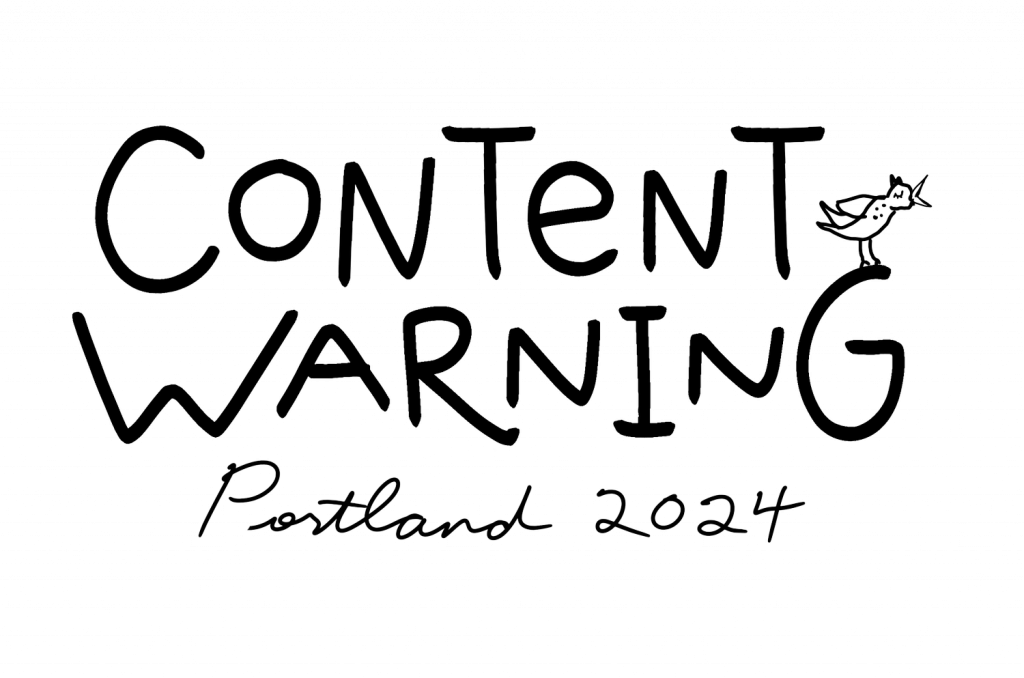This past weekend, I attended the 2024 Content Warning Event online. This was an event hosted and sponsored by the Thereafter and Go Home Bible You’re Drunk podcasts to discuss purity culture, the various ways it has harmed people, and ways to move beyond it. It was an excellent conference, consisting entirely of panel discussions and the panelists represented a diverse range of sexualities and racial backgrounds.
I loved the fact that the event consisted solely of panel discussions rather than including lectures or presentations given by solo speakers. It made it clear that the goal was dialogue rather than a one-way communication of ideas. Given who authoritarian purity culture and the larger Christian cultures that promote it tend to be, I thought that in itself was a nice act of resistance.
I also appreciated the diversity of topics and perspectives that the event tried to cover. This was not merely a conference about how purity culture demeans sex (which is a true statement) and creates guilt, but one that explored the white supremacy inherent in purity culture, the damage purity culture does to the way people understand their own gender, and how purity culture harms relationship — including non-romantic relationships. One of my favorite moments was when Dr. Tina Schermer Sellers gave her introduction during the first panel discussion and brought up how purity culture harms relationships between parents and children.
Some panel discussions interested me more than others. For example, I was not particularly engaged with the panel discussion about queer inclusion, since that focused primarily on queer inclusion within Christianity and I’m not interested in being included in Christianity. In fact, I appreciated Chrissy Stroop, who facilitated that particular panel discussion, for noting that she was happy to just avoid theology altogether. Chrissy and I differ in that I still enjoy theology, but we both have little use for Christian theology.
(I want to quickly note, that the above is a personal opinion. I understand that many queer folks are Christian and remain to be so. I’m sure they appreciated that particular panel discussion far more than I did. And not everything needs to be nor should be about me.)
While I’m talking about my own religious views, I will note that one thing I would love to see see more diversity of religious thought in the future. The panelists seemed to be mostly Christian, Christian adjacent, or non-religious. And while that probably reflects the demographics of most people who have escaped purity culture pretty well, a bit more representation of those of us who “are still religious, but not Christian anymore” would be nice. Plus I think that exploring the ways that other religions view sex and sexuality would be beneficial for everyone. For example, my own spiritual tradition has a lot to say about sex as sacred and even a religious rite.
Some of my favorite panels were the ones that looked beyond purity culture and talked about building new ways to see sexuality and even think about the morality of sex. These panels included discussions of sex work and porn consumption, non-monogamous relationships and sex, and decolonizing purity culture. I’d love to see more such panels in the future. I think “where do we go from here” is an important question to ask and there are plenty of ways to explore it.
I also appreciated that some panel discussions– most notably the one on decolonization — spoke to issues and ideas beyond purity culture. I think this is important because purity culture doesn’t exist in a vacuum, but is part of a much bigger system. I suspect that the whole system must be tackled and keeping that in mind even when discussing a particular sub-component or constituent part is important.
At the end of the event, they announced that the next event will be held next year over President’s Day weekend in Atlanta Georgia. It’s not clear to me if that one will also be focused on purity culture or if they might cover a (slightly) different topic. Either way, I look forward to it and hope it’s as delightful, uplifting, and educational as this one was.

